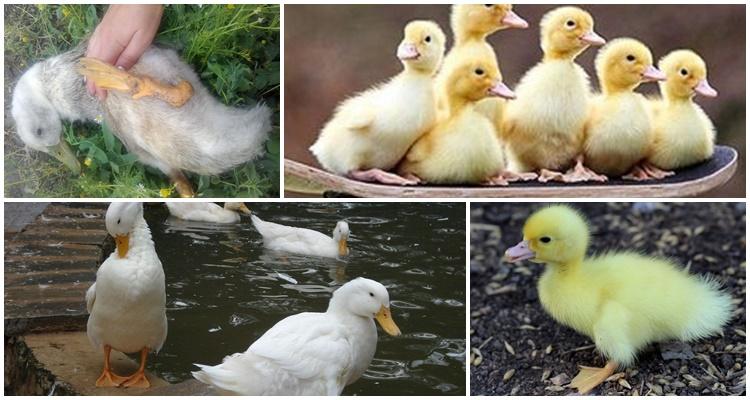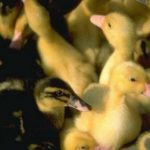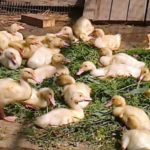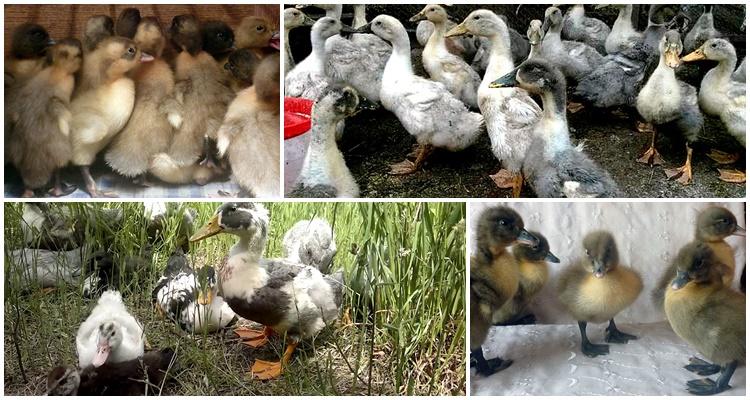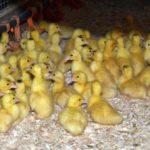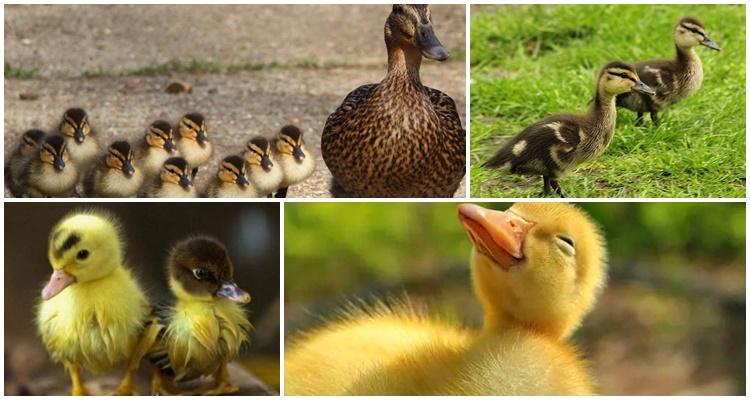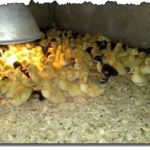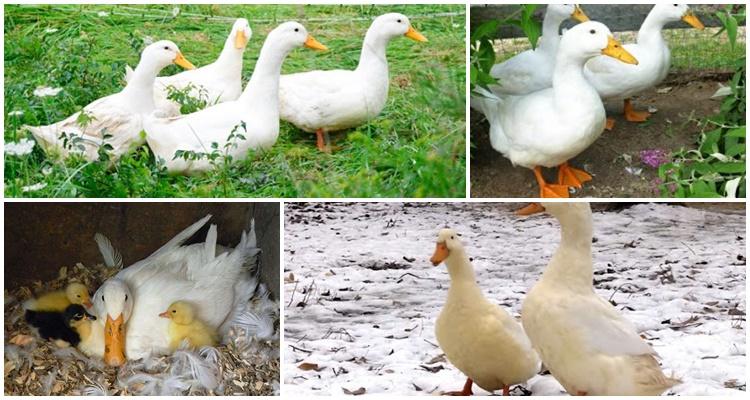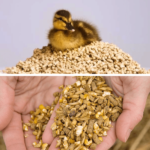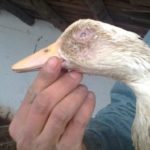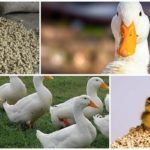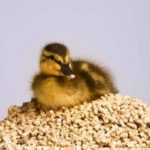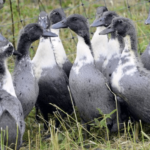Raising ducks is a profitable business. Duck meat is in great demand; the bird grows quickly, gains weight well, and is undemanding in the choice of food. Ducks are good hens and caring mothers, and a large number of eggs can be loaded into a special incubator. But in a number of cases, farmers have questions about why their ducklings suddenly die, and how they can protect their livestock from this problem.
- Possible diseases
- Aspergillosis
- Tuberculosis
- Hepatitis
- Goiter inflammation
- Pasteurellosis
- Salmonellosis
- Parasitic infestations as a cause of mortality
- Poor nutrition
- Errors in containment conditions
- Improper arrangement of the walking area
- High stocking density
- Microclimate does not comply with recommended standards
- Prevention measures
Possible diseases
The main reasons for the death of birds - chicks and adult ducks - are infectious diseases. In favorable conditions, with significant crowding of livestock, poor care and unsanitary conditions, a rapid spread of infection and mass destruction of the entire livestock can occur. This can lead to the complete destruction of the poultry house and the ruin of the farmer, or it can cause significant financial losses for residents of a village or suburb.
There are a number of diseases that can affect ducklings of different ages and lead to their death.
Aspergillosis
This is a type of mycosis that affects various types of poultry, including ducks. Day old ducklings become infected and die one after another, more than half of them die, while adult ducks rarely get sick. Symptoms of the disease:
- Wheezing, difficulty breathing.
- Ducklings stretch their necks forward.
- Loss of appetite.
- Loss of body weight.
- Lethargy.
- Inflammation of the eyes and area around the beak.
- Paw paralysis.
The disease is almost untreatable. Sick ducklings are culled, the rest are given the drug "Nystatin", and a solution of copper sulfate is added to the drink.
Tuberculosis
This is a very dangerous disease that can be transmitted to people from birds and vice versa. Tuberculosis can affect not only the lungs, but also other organs. Tumors form on the body and legs, the birds stop moving, laying eggs, eating, fall on their feet, suffer from lameness and diarrhea, and lose a lot of weight. A characteristic icteric discoloration appears on the skin. Tuberculosis is not treated, sick livestock are exterminated, carcasses and eggs are burned.
Hepatitis
This viral liver infection causes widespread disease in poultry. A sick chick throws back its head, lowers its wings, breathes heavily, and does not eat. Beginning cramps are a sign of an imminent end. The disease can be treated with antibiotics as prescribed by your veterinarian. The remaining ducklings are quarantined and their immunity is strengthened by giving them fish oil, a pale pink solution of potassium permanganate to drink, and tetracycline antibiotics for prevention.
Goiter inflammation
Unlike land birds, the crop of waterfowl is poorly developed, so ducklings are fed wet mash, changing them often so that they do not spoil. The cause of inflammation, or catarrh, of goiter is poor quality food or dirty drinking water.
You can cope with goiter inflammation at home by artificially emptying the organ. The bird is taken by the legs, turned head down and, stroking the neck, the crop is cleaned. You will have to do this several times. After treatment, the bird is given only water with a weak solution of hydrochloric acid over the next day, and then soft milk-based food.
Pasteurellosis
In the acute form of this disease, both adult ducks and chicks die. Symptoms are similar to those of other infections and include weakness, cramps, high fever, diarrhea, refusal to eat and extreme thirst. Treatment is ineffective; the affected bird is destroyed. Sick ducks should not be used as food.
Salmonellosis
This disease is also called paratyphoid. It is the most common and dangerous, since not only birds, but also people can become infected. Basically, ducklings are affected by an acute form of the disease, which kills up to 80% of the livestock. The survivors become carriers.
Parasitic infestations as a cause of mortality
Day-old and older ducklings can die not only from infectious diseases, but also from parasites. The most common pests are:
- Helminths that enter the body through food and water.
- Lice. The cause of infection can be poor living conditions, overcrowding, as well as proximity to wild animals and birds.
- Ticks are transmitted from other birds and can live in dirty litter. This is a common problem in cramped poultry houses.
- Bird eaters also multiply quickly in close quarters, infecting all birds. They live in clogged rooms where hygiene standards are violated and the bedding is rarely changed.
Symptoms of damage by external and internal parasites are similar and are manifested by the fact that the ducklings weaken, become lethargic, cannot stand on their feet, fall and roll over on their backs, and convulse. A chick that is weak or eaten by ectoparasites curls up and lies motionless because it does not have the strength to resist the parasites.
Internal parasites are removed with specialized drugs used strictly according to the instructions. You can resist lice, ticks and lice by maintaining cleanliness, as well as by organizing ash baths for the birds.
Poor nutrition
With a monotonous or poor diet, ducklings die due to a lack of vitamins. Twitching, weakness and cramps may indicate a lack of various vitamins, but most often it is vitamin deficiency A, E, D and group B. To avoid the problem, the chicks are fed fresh wet mash of corn and wheat dirt, enriched with fish oil and flour, and ready-made vitamin supplements D.One-week-old ducklings can be offered young greenery or let them walk on the lawn.
You can avoid health problems by using Mulard ducks. This is an artificially produced (not existing in nature) hybrid of indo-ducks and domestic ducks (Orpington, Peking white, Rouen and white Allier). In this way, you can avoid the hereditary deficiencies inherent in domestic ducks and get healthy, resilient offspring.
Errors in containment conditions
The cause of ill health and death of ducklings may not be illness, but simple errors in the living conditions. Familiarization with such reasons for the death of ducklings will help to avoid violations and create ideal conditions for the bird.
Improper arrangement of the walking area
Sometimes ducklings get sick and become lethargic, seemingly for no apparent reason. They have excellent food and living conditions, clean and warm. The following reasons related to improper design of the walking area can cause disturbances in well-being:
- Thorny, tough plants grow on the territory, which can injure the chicks.
- Rubbish, stones, glass fragments, etc. were not removed from the site.
- Snow, crust, ice accumulations.
- Poor drainage leading to high humidity in the area.
The paddock needs to be cleaned regularly, sowed with grass in warm weather, snow removed in winter and covered with hay or straw.
High stocking density
If the area is too small, the accumulation of a large number of ducklings leads to the fact that the stronger chicks do not allow the weaker ones to approach the feeders and drinkers and trample them. Exhausted and weakened ducklings fall, kick their legs and cannot get up.
Crowded housing is a common problem of why ducklings die even with good nutrition.
Microclimate does not comply with recommended standards
If in summer the ducklings hide in the corners, sit with their beaks open, try not to move and breathe with difficulty, this means that the microclimate in the poultry house does not meet the requirements, they are hot. It is necessary to establish ventilation, as the bird overheats and may get sick.
If the chicks try to huddle together, huddle together, and are cold, the house needs to be heated. Ducklings need fresh air, but drafts, especially with high humidity, can cause dangerous diseases and death of birds.
Prevention measures
In order to avoid infection and disease in ducklings, it is necessary to follow the following recommendations from experienced poultry farmers:
- Maintain cleanliness in the poultry house and on the run, regularly clean the room, feeders, nests and equipment, and disinfect them.
- Monitor the condition of the litter and change it often.
- Use high quality feed.
- Make a balanced diet, monitor the presence of vitamins and minerals in food.
- If eggs are purchased for incubation, they should only be purchased from trusted suppliers, in farms where there are no outbreaks of infectious or parasitic diseases.
- Use clean eggs for incubation.
- Separate ducklings from adult birds.
- Vaccinate chicks in a timely manner.
- If infected ducklings are found, separate them from the rest of the flock, keep them in quarantine and monitor their condition.
- Regularly check the health of the bird - both ducklings and adult ducks.
- Do not allow unhealthy people to care for chicks.
- Sow grass in the poultry area.
- Provide waterfowl with access to water. They must bathe and swim in natural or artificial water.
A competent approach to duck breeding will allow you to preserve all the resulting livestock and raise healthy and strong ducklings.

